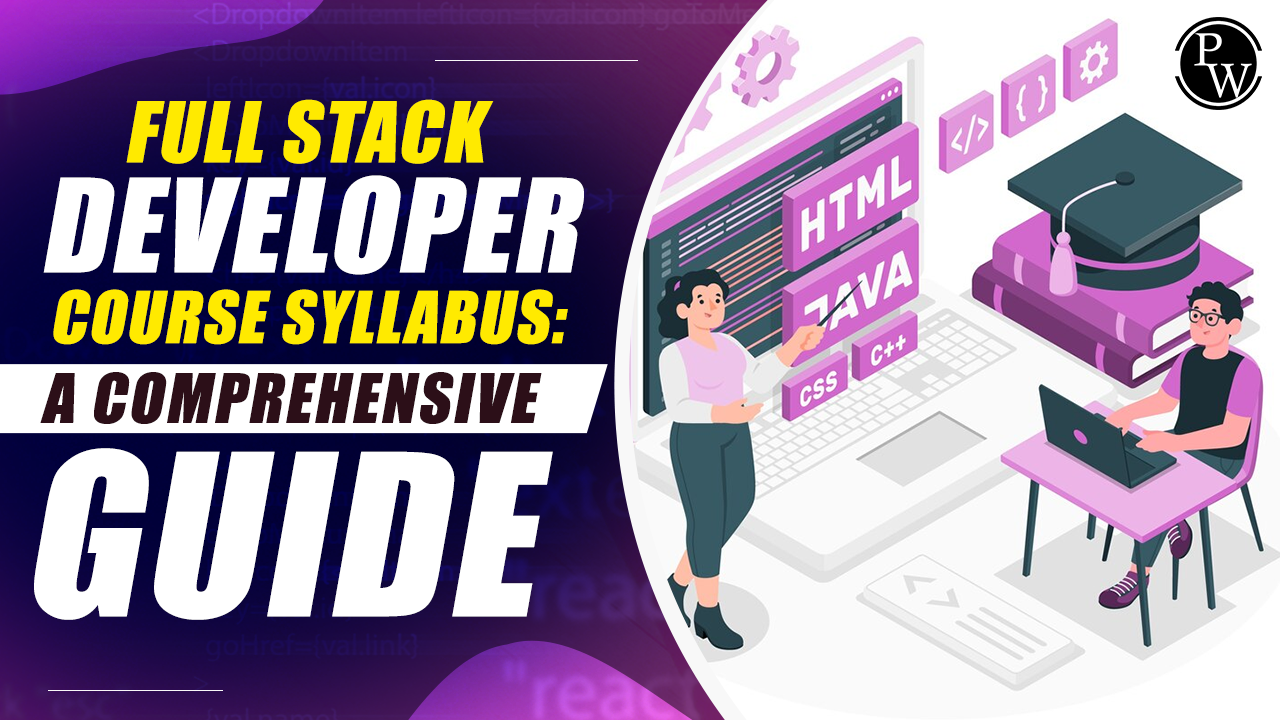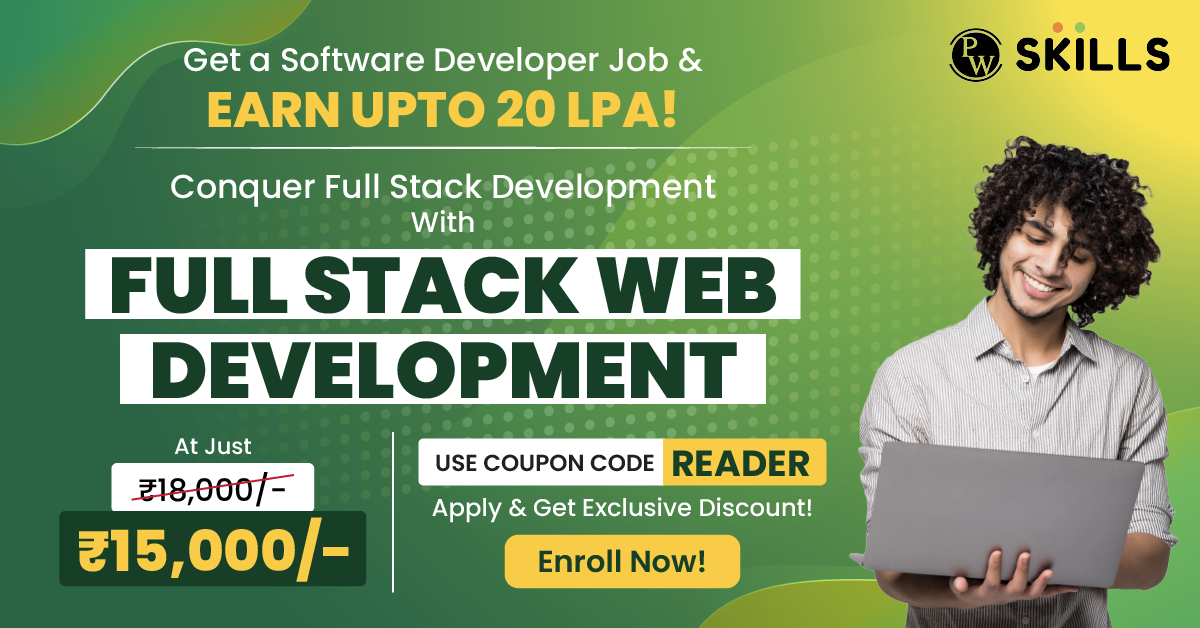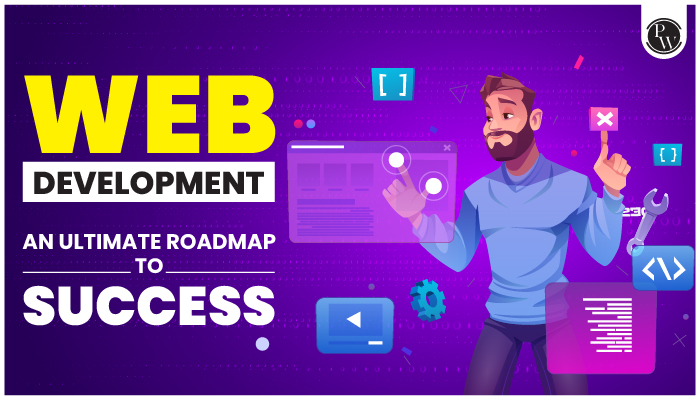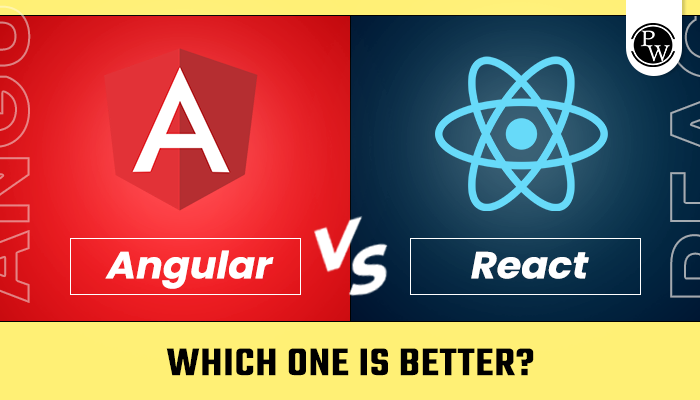Full stack developer course syllabus gives you an idea about the full stack web development syllabus. Go through it before enrolling in a full-stack development course.
Full Stack Developer Course Syllabus: A software engineer or programmer who can create both front-end and back-end solutions of a website is referred to as a full stack developer. The full stack developer course syllabus gives you a complete understanding of the various development technologies, tools, and procedures taught in the course.
Full-stack development is in demand these days as more companies want to establish their online presence through apps and websites. So, companies are keen on hiring individuals who understand both front-end and back-end technologies well. In this article, we will look at the full stack developer course syllabus in detail.
An Overview of the full stack developer Course Syllabus
As a full stack developer, you must manage databases, systems, and servers efficiently. The below table will give you an overview of this course:
| An Overview of the full stack developer Course Syllabus | |
| Particulars | Details |
| Who is a full-stack developer? | The person who has a vast knowledge and experience of front-end and back-end technologies is a full-stack developer. |
| Number of modules in full stack web development course syllabus | 8 |
| Number of mini projects full stack web development course | 6 |
| Capstone Project in full stack web development course | 1 |
| Front-End Technologies in Full Stack | HTML5, CSS, JS, ReactJS, AngularVs, etc. |
| Back-End Technologies in Full Stack | NodeJS, MongoDB, Python, Flask, etc. |
| Course Tenure | 3 months to 1 year |
Also Check: Encapsulation in C#
Modules of full stack developer Course Syllabus
A full stack developer course syllabus can be divided into 8 modules. Each module covers a specific front-end or back-end technology. After completing the course modules, you will have to work on some projects to gain practical knowledge and skills. It will include a capstone project in which you get to present all the skills you have acquired during the course work. The modules of the full stack web development syllabus have been explained in the below table:
| Modules of full stack developer Course Syllabus | |
| Modules | Details |
| Module 1 – HTML | You learn the basics and advanced HTML (Hyper Text Markup Language) in this module. |
| Module 2 – CSS | Applications and concepts of CSS (Cascading Style Sheets) are explained in this module. |
| Module 3 – JavaScript | You learn how to build websites and applications using JS in this module. |
| Module 4 – ReactJS | In this module, you learn about ReactJS which is a front-end development technology that is used to make the web pages interactive and user-friendly. |
| Module 5 – NodeJS | NodeJs is a backend technology through which you can develop your backend skills |
| Module 6 – MongoDB | The concepts of MongoDB and its applications in projects of various sizes are discussed in this module. |
| Module 7 – Python | The basics of Python are taught in this module. By going through the concepts, you can learn to develop and configure applications using the Python language. |
| Module 8 – VCS | This module helps you control versions and simply the processes when you work on real projects. |
Full Stack Developer Course Syllabus for Module 1
Module 1 is dedicated to HTML. It covers all the concepts of HTML and you learn how to use it to create webpages. The full stack web development syllabus for Module 1 is given below:
| Full Stack Developer Course Syllabus for Module 1 | |
| Topic Name | Description |
| Introduction to HTML | This topic talks about the history of HTML and different versions that have been released till date. |
| Tags, Attribute and Elements | You learn HTML tags, elements, and attributes in this topic. |
| Browsers and HTML | How browsers are developed using HTML and other web technologies are discussed in this topic. |
| Headings, Paragraphs, and Formatting Text | Different headings from H1 to H6 along with the basics of formatting text and paragraphs in HTML are covered in this topic. |
| Editor’s Offline and Online | This topic explains about the offline and online HTML editors. |
| Lists and Links | You learn how to insert links in an HTML document and how to create lists through this topic. |
| Images and Tables | This topic teaches you how to insert tables and images in web pages created using HTML. |
| Doctype Element | Through this topic, you learn how to declare doctype and use it. |
| Comments | The uses and ways of creating comments in an HTML document are explained in this topic. |
Full Stack Developer Course Syllabus for Module 2
CSS (Cascading Style Sheets) helps you modify the appearance and layout of web applications. Some of the key topics in full stack developer course syllabus for module 2 are given below:
| Full Stack Developer Course Syllabus for Module 2 | |
| Topic Name | Description |
| Introduction to CSS | This topic briefly introduces the history of CSS and its features to you. |
| CSS General Topics | The meaning and basic concepts of CSS are explained in this topic. |
| CSS Margins, Padding, and Borders | The uses of margins, borders, and padding in the layout of a webpage are discussed in this topic. |
| CSS Text and Font Properties | This topic talks on how to modify text and font properties in CSS. |
| Applying CSS to HTML | The applications of CSS in web pages and applications created using HTML are explained in this topic. |
| CSS Box Model | The concept of CSS Box Model and its uses are elaborated in this topic. |
| Selectors, Properties and Values | This topic discusses the core pillars of CSS which are selectors, their properties, and associated values. |
| CSS Colors and Backgrounds | You learn how to use different colors and backgrounds in CSS through this topic. |
Full Stack Developer Course Syllabus for Module 3
Approximately 90% of the websites, applications, and platforms you see on the internet are developed using JavaScript. The below table contains the brief details of full stack web development syllabus for Module 3:
| Full Stack Developer Course Syllabus for Module 3 | |
| Topic Name | Description |
| Introduction to JavaScript | This topic introduces you to the foundation and brief history of JS. |
| Functions | This topic covers all the key functions used in JS. |
| Switch Case | The concept of switch case and its implementation in JS is discussed in this topic. |
| Looping in JS | The importance of JS Loops and their applications are discussed in this topic. |
| Conditional Statements | If, If-else, and other conditional elements in JS are discussed in this topic. |
| Date and Time | The concepts of date and time in JS are discussed in this topic. |
| Objects and Arrays | The meaning, uses, and applications of arrays and objects in JS are explained in this topic. |
| Math and String Manipulation | The string handling process and the math behind it are covered in this topic. |
| Understanding JS Syntax | The syntax structures used in JS codes are explained in this topic. |
| Introduction to Document and Window Object | Differences between windows and document object are explained in this topic. |
| Applying JavaScript (internal and external) | You learn how to add JS to HTMl directly through this topic. |
| Variables and Operators | The different operators and variables used in JS are covered in this topic. |
| Data Types and Num Type Conversion | JS Type Conversions are covered in this topic. |
Full Stack Developer Course Syllabus for Module 4
This module covers the ReactJs framework and its role in rapid app development. The following topics are covered in the full stack developer course syllabus for Module 4:
| Full Stack Developer Course Syllabus for Module 4 | |
| Topic Name | Description |
| Introduction | An introduction to ReactJs through its brief history is given in this topic. |
| Webpack | How webpack (a module bundler) is used in ReactJs is explained in this topic. |
| Unit Testing | The concept of unit testing and its relevance in software development are discussed in this topic. |
| Service Side Rendering | How ReactJs is used for service side rendering is discussed in this topic. |
| Immutable.js | The relevance of Immutable.js library is discussed through this topic. |
| Redux and Redux Saga | The differences between Redux and Redux Saga and their uses are covered in this topic. |
| Error Handling | This topic discusses the process of error handling in ReactJs. |
| Routers | The importance of React Router is explained through this topic. |
| Templating using JSX | This topic teaches you how to write HTML like codes in JS. |
| Components, State and Props | How data is managed using props, state, and components is elaborated in this topic. |
| Lifecycle of Components | The lifecycle of every component in React is elaborated through this topic. |
| Rendering List and Portals | The ways to render lists and portals in ReactJs are covered in this topic. |
Full Stack Developer Course Syllabus for Module 5
You will learn backend skills using NodeJs which is based on Javascript in this module. The below table contains details of the full stack developer course syllabus for Module 5:
| Full Stack Developer Course Syllabus for Module 5 | |
| Topic Name | Description |
| NodeJs Overview | An overview of the NodeJs scripts is given in this topic. |
| NodeJs Concepts | The fundamentals of NodeJs are covered here. |
| NodeJs – Command Utilities | The various command utilities in NodeJs and their uses are discussed in this topic. |
| NodeJs – Basics and Setup | The basics and setup of NodeJs are explained here. |
| NodeJs – Console | Get more knowledge about NodeJs Console through this topic. |
| NodeJs – Events | The meaning, significance, and applications of NodeJs Events are explained in this topic. |
| NodeJs – Modules | Different NodeJs Modules are covered in this topic. |
| NodeJs with ExpressJs | Express Js which is a web application framework based on NodeJs is covered in this topic. |
| NodeJs – Database Access | The ways to access a remote database using NodeJs are discussed in this topic. |
Full Stack Developer Course Syllabus for Module 6
The applications of Module 6 in projects of varying size and scope are covered in this module. The below table contains details of the full stack developer course syllabus for Module 6:
| Full Stack Developer Course Syllabus for Module 6 | |
| Topic Name | Description |
| Create and Manage MongoDB | How to create and manage web applications using MongoDB is explained in this topic. |
| Services Offered by MongoDB | The various services present in MongoDB are discussed in detail in this module. |
| SQL and NoSql Concepts | The SQL and NoSQL concepts in MongoDB are covered here. |
| MongoDB with NodeJS | The integration of MongoDB with NodeJs is covered in this topic. |
| MongoDB with PHP | The integration of PHP and MongoDB is explained here. |
| Migration of Data into MongoDB | How to migrate data in MongoDB is explained in this topic. |
Full Stack Developer Course Syllabus for Module 7
Python is useful for learning web designing, data science, and other emerging technologies. The below table contains details of the full stack developer course syllabus for Module 7:
| Full Stack Developer Course Syllabus for Module 7 | |
| Topic Name | Description |
| Python Installation and Configuration | You will learn the technique of configuring Python once you install it through this topic. |
| Connect MongoDB with Python | You learn how to integrate Python with MongoDB in this module. |
| Developing a Python Application | The process of developing an application using Python language is described here. |
Also Check: Top 30 HTML Interview Questions and Answers in 2023
Full Stack Developer Course Syllabus for Module 8
You need to cover version control using GIT to collaborate with a team on different projects. Everything related to this is covered in this module. Do you want to become a successful full stack developer? At PW Skills, we offer a full-stack web development course in which you learn about MERN Stack. You can gain hands-on experience and skills in this course. Apart from career guidance and resume building services, we also offer job assurance to our enrollees. Check our portal today and explore the best courses to become a full stack developer.
FAQs
Is 3 months enough for a full stack developer?
It is possible to be a full stack developer only if you have prior knowledge of different backend and front end technologies. Freshers can only learn the basics of full-stack development during this tenure.
What should I study to become a full stack developer?
Learn different front-end and back-end technologies and study how to control and manage them to become a full stack developer.
How much does a full stack developer earn?
On an average, a full stack developer earns approximately Rs. 7,40,000 per year in India.
Will full-stack be in demand in the future?
Yes, with most businesses trying to complete their digital transformation, the full stack developers will continue to be in demand in the future as well.
Which languages should I learn to become a full stack developer?
Learn Python, MongoDB, ReactJs, NodeJs, JavaScript, HTML, and CSS to become a successful full stack developer.




